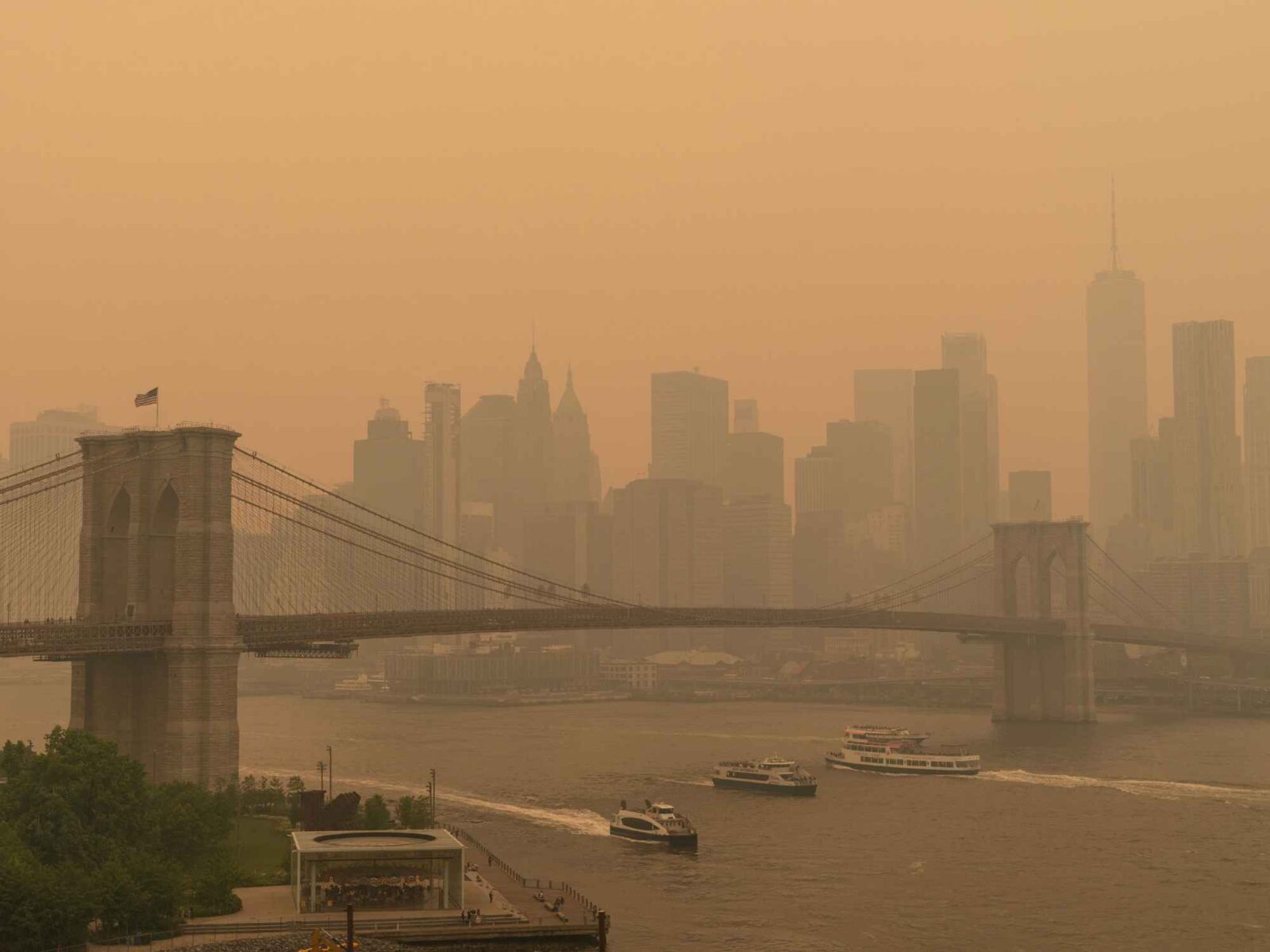Canadian Wildfires and the Toll of Human-Driven Climate Change
ACE Staff Writer
|June 8, 2023

Canada’s unprecedented wildfire crisis clearly illustrates the escalating risks fueled by human-driven climate change. Intensified by the extraction and consumption of fossil fuels, these infernos pose a grave threat not only to Canada but also to the United States. As the smoke billows across borders, poisoning the air and endangering public health, the urgent need to address the root causes of climate change become obvious. The growing frequency and intensity of wildfires globally, including the current fires in Canada, have alarmed scientists and experts who attribute this destructive trend to the undeniable influence of climate change, with the smoke adversely impacting regions as far as the eastern United States.
The Occurrence of Wildfires
While wildfires have always been a natural occurrence, the increasing occurrence and severity of these blazes can be attributed to human activities, primarily the burning of fossil fuels. The extraction and consumption of fossil fuels—oil and gas—have significantly contributed to the greenhouse gas emissions responsible for climate change. As a result, Canada has witnessed warmer and drier conditions, creating a tinder-dry environment conducive to the rapid spread of wildfires.
The intensification of wildfires, fueled by climate change, has led to a staggering increase in burned areas. In the last 40 years, almost 40% of forest area burned in the western United States and southwestern Canada has been attributed to emissions from the largest 88 fossil fuel producers and cement manufacturers. The ongoing wildfires in Canada have unleashed widespread destruction, leaving trails of devastation in their wake. Vast areas of forests, wildlife habitats, and communities have fallen victim to the merciless flames, underscoring the urgent need to address the underlying causes of these catastrophic events.
The Impact of Wildfires
The impact of wildfires extends far beyond the immediate fire zones, with smoke traveling vast distances and affecting air quality in far away regions. The current wildfires in Canada have led to a haze of hazardous particles spreading across North America, resulting in air quality alerts across various U.S. states, from Minnesota to South Carolina. Reuters reports that the smoke from these fires has drifted south, leading to compromised air quality and triggering respiratory health warnings. The fine particulate matter and pollutants carried by this smoke pose severe health risks to populations in affected regions. the health consequences linked to exposure to wildfire smoke include respiratory issues, cardiovascular problems, and increased mortality rates, amongst others. This transboundary transport of wildfire smoke underscores the interconnectedness of global climate change and its consequences, emphasizing the urgent need for international collaboration to combat the underlying drivers of these devastating events.
The Canadian wildfires serve as a stark reminder of the deep-rooted connection between fossil fuel consumption, human-driven climate change, and the intensification of these catastrophic events. The extraction and burning of fossil fuels release vast amounts of greenhouse gasses, which exacerbate the conditions conducive to wildfires. The increasing frequency, severity, and duration of these blazes have grave implications for ecosystems, biodiversity, and the carbon balance. The release of vast amounts of carbon dioxide into the atmosphere exacerbates climate change, further perpetuating the conditions conducive to wildfires. As the flames continue to ravage Canada, urgent measures to transition away from fossil fuel dependency and embrace sustainable energy sources become imperative. Mitigating climate change through reduced emissions is crucial in curbing the destructive cycle of wildfires, their detrimental impact on both local and global scales, and safeguarding future generations.
Join our Youth Action Network
More Blog Posts

Unnatural, Not Unprecedented
For two weeks, residents of Southern California endured a waking nightmare. Parents raced against time – hurrying down the driveway …
Read MoreCrafting a Vision for the Future: My Experience at LCOY USA 2024
Dry and sunny Tempe, Arizona where temperatures have been over 100 F for 113 consecutive days, delegates gathered to attend …
Read More
7 Ways to Weatherproof Your Home on the Cheap (+1 Not-So-Cheap)
As colder weather sets in, understanding how to weatherproof your home is key to maintaining warmth and reducing energy costs. …
Read More